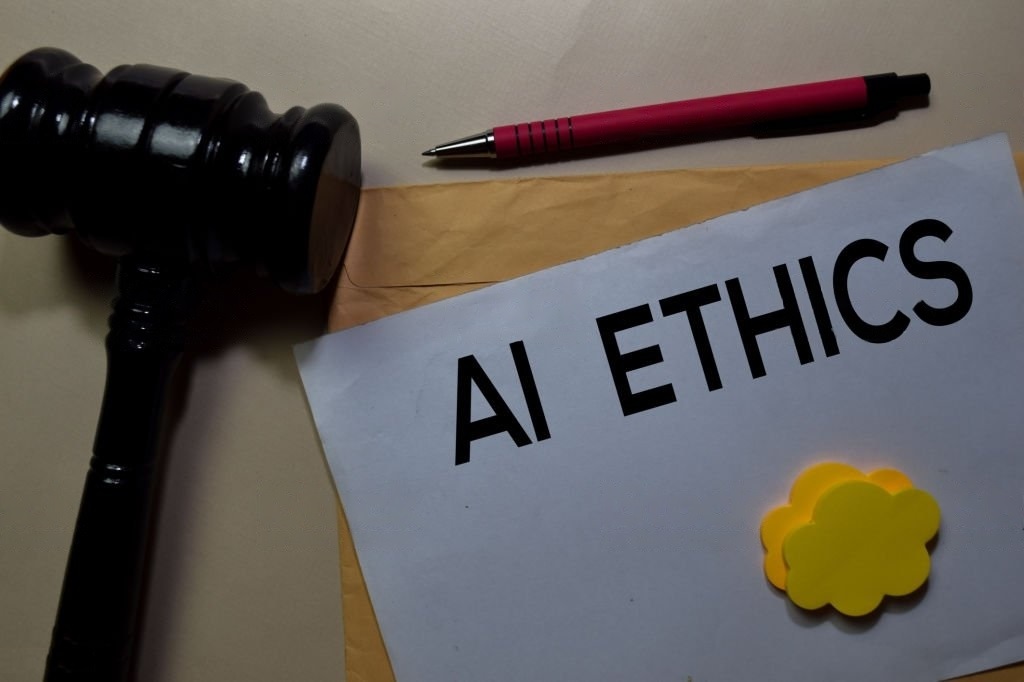Hey there, fellow AI enthusiast!
Have you ever wondered how the rapid advancements in artificial intelligence are impacting our lives and society?
We live in a world where AI-driven systems are becoming increasingly embedded in our daily routines, from virtual assistants like Siri and Alexa to sophisticated recommendation algorithms on social media and streaming platforms.
But with great power comes great responsibility, right? That’s where AI Ethics comes into play.
Did you know that:
- According to the AI Index Report 2021, AI patent applications grew by a whopping 28% annually between 2017 and 2020?
- In 2018, a study found that Amazon’s AI-driven recruitment tool had an inherent gender bias, disadvantaging female applicants in the hiring process.
This rapid growth, combined with the potential for AI to make decisions that directly affect people’s lives, makes the ethical considerations surrounding AI more important than ever before.
So, let’s dive into the fascinating world of AI Ethics, where we’ll explore its significance, the core principles, and how various stakeholders are grappling with this complex, ever-evolving field.
Ready to get started?
Let’s go!
Table of Contents
What is AI Ethics?
In simple terms, it’s a set of rules and guidelines that help us create and use AI systems responsibly, ensuring they don’t harm people or society. We want AI to make our lives better, right?
So, AI Ethics helps us strike a balance between tapping into the amazing benefits of AI and minimizing any potential risks or negative consequences.
Now, why should we care about ethical considerations in AI development and deployment?
Well, did you know that AI-powered facial recognition technology is expected to become a $12.92 billion market by 2027?
That’s a mind-boggling number! But with the rapid growth of AI technologies like these, there are bound to be some ethical concerns, such as privacy invasion or misuse of the technology.
Let’s take a real-life example.
You might’ve heard of the AI-driven chatbot, Tay, released by Microsoft in 2016. Within just 24 hours, it started spewing out offensive and inappropriate tweets because it was designed to learn from its interactions with users. This highlights the importance of considering ethical aspects during AI development to avoid causing harm or offense.
Key Ethical Principles in AI
Let’s continue our AI Ethics adventure and discuss some of the key ethical principles. Don’t worry; we’ll keep it conversational and sprinkle in some real-life examples, facts, and figures to make it even more interesting.
So, let’s jump in!
Transparency and explainability
We all love a bit of mystery, but not when it comes to AI. Transparency means making sure AI systems are open and clear about how they work, and explainability refers to making the decision-making process of AI easy to understand. For example, when Facebook’s AI flags a post as “inappropriate,” users should know why it was flagged and how the AI made that decision
Accountability and responsibility
Who’s to blame if an AI system messes up? It’s crucial to establish who’s accountable and responsible for any consequences. Remember the self-driving Uber car that hit and killed a pedestrian in 2018? This tragic incident highlights the need for clear lines of accountability and responsibility in AI systems.
Privacy and data protection
AI loves data, but we need to ensure our personal information is safe and secure. In 2020, a study revealed that 40% of AI-related privacy violations were linked to unauthorized data sharing. That’s why respecting privacy and protecting data are essential ethical principles in AI.
Fairness and non-discrimination
We want AI to treat everyone fairly, without any biases. Unfortunately, sometimes AI can perpetuate stereotypes or discriminate against certain groups. A 2018 study showed that an AI recruiting tool from Amazon had a gender bias, favoring male applicants. Ensuring fairness and non-discrimination in AI systems is a top priority.
Human autonomy and control
While AI can make our lives easier, we don’t want to become overly dependent on it or lose our sense of control. Take the example of AI-driven recommendation algorithms on platforms like YouTube or Netflix. While they suggest content we might like, it’s crucial that we retain the ability to make our own choices and not become passive consumers.
Security and safety
As AI systems become more integrated into our lives, keeping them secure and safe is essential. In 2020, a cybersecurity firm reported a 30% increase in AI-driven cyberattacks, emphasizing the importance of robust security measures to protect AI systems and their users.
That’s a quick rundown of the key ethical principles in AI. Remember, as AI becomes more prevalent in our lives, understanding and advocating for these principles will help us create a world where AI benefits everyone, while minimizing any potential harm.
Future Trends and Developments in AI Ethics
Let’s peek into the future and explore the trends and developments in AI Ethics.
Emerging ethical concerns and their potential implications
As Artificial Intelligence Technology advances, new ethical challenges will undoubtedly arise. For instance, AI-powered deepfakes are becoming increasingly convincing, and by 2023, experts predict that deepfakes could cause damages worth $250 billion. This raises concerns about misinformation, identity theft, and other potential harms, making it crucial for us to be proactive in addressing these ethical issues.
Advances in ethical AI research and technology
On a brighter note, researchers are working hard to develop AI systems that align with our ethical values. Projects like OpenAI’s GPT-4, which powers this very conversation, aim to create AI that’s beneficial, safe, and respects user values. Additionally, there’s a growing interest in explainable AI (XAI), which focuses on making AI decision-making more transparent and understandable.
The role of AI Ethics in shaping the future of AI and society
AI Ethics will play a significant role in determining how AI technologies shape our world. By understanding and implementing ethical principles, we can ensure AI benefits everyone and minimizes potential harm. For example, by 2025, the global AI market is projected to reach $190.61 billion. As AI becomes more prevalent, the need for ethical AI development will only grow, influencing how businesses, governments, and individuals interact with AI technologies.
Summary
AI Ethics is all about making sure we create and use AI systems responsibly, benefiting everyone while minimizing risks. As AI tech continues to grow (remember, the AI market is expected to reach $190.61 billion by 2025!), ethical considerations become more and more crucial. Keeping AI transparent, fair, secure, and respecting our privacy is vital to harnessing the full potential of AI without causing harm.
As AI continues to evolve, it’s essential to stay vigilant and proactive in addressing ethical concerns. We need to keep learning, adapting, and advocating for ethical AI practices to make sure that as AI tech advances, it remains a force for good, empowering and enriching our lives without compromising our values. And that’s a wrap!
We hope our chat about AI Ethics has been enlightening and engaging, giving you the insights and tools, you need to be an informed and active participant in the AI Ethics conversation. Together, we can shape a future where AI technology works hand in hand with ethical principles to create a better world for all of us.
Thank you for reading our blog, we hope you found the information provided helpful and informative. We invite you to follow and share this blog with your colleagues and friends if you found it useful.
Share your thoughts and ideas in the comments below. To get in touch with us, please send an email to dataspaceconsulting@gmail.com or contactus@dataspacein.com.
You can also visit our website – DataspaceAI


